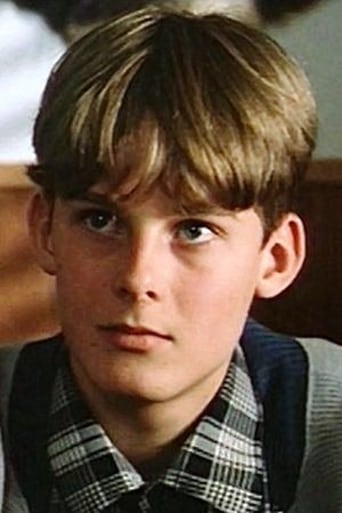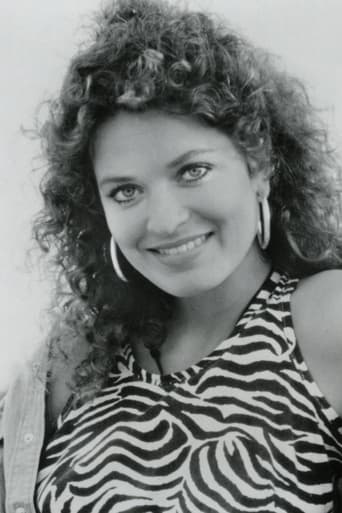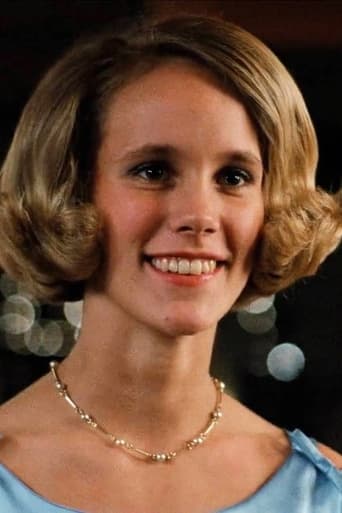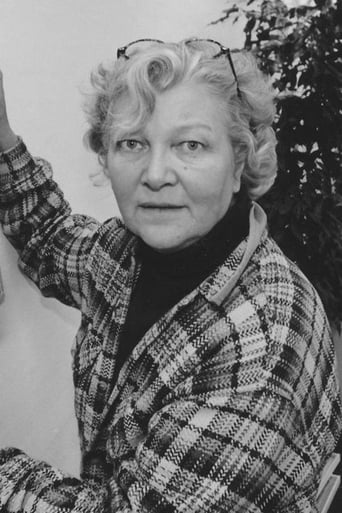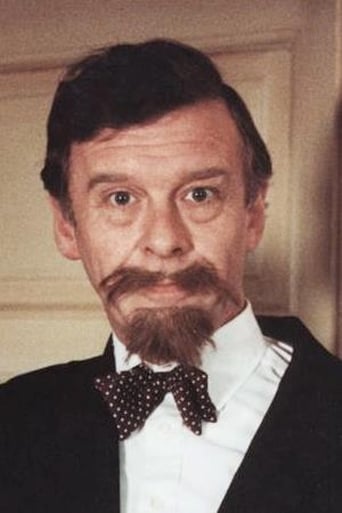Diagonaldi
Very well executed
Platicsco
Good story, Not enough for a whole film
Fairaher
The film makes a home in your brain and the only cure is to see it again.
Ava-Grace Willis
Story: It's very simple but honestly that is fine.
Bene Cumb
As I know the Danish language and society, I include, from time to time, some Danish films or series into my watching list. Particularly those dealing with events before 1990ies, before my personal experience with this great nation and country. And as Bille August is one of the best known Danish directors in the world, it is logical that Tro, håb og kærlighed would appear sooner or later... Well, I suppose "later", as I had seen hundreds of Danish creations already, including August's Pelle Erobreren, so my expectations were apparently too high. No, don't get me wrong, the film in question is skilfully directed and diversely performed (particularly all depicting Erik's family), plus provides a good overview of life in Danish cities in the 1960ies, but the story itself is not smooth, is somewhat "chopped", and some events / reactions by people are not realistic (e.g. during the wedding). The solution/ending is also adumbrative and, all in all, I am not sure that this film (with rather unfitting title in English) does bespeak the youth and families in the 21st century as well, thus not possessing durable approaches and values. But of course, the film is far above being mediocre.
runamokprods
Another solid film from Bille August about adolescence in Denmark the 60s - 1963 this time.This is even a little stronger than August's 'Zappa', if not quite up to Roy Andersson's somewhat similar, brilliant 'A Swedish Love Story'. The Scandinavians seem to have a knack for making emotionally complex films about adolescence. As with 'Zappa' some of this feels very familiar (first love, leading to pregnancy and to abortion that ruins the romance), and some feels a bit forced or unrealistic (would the parents of an upper-class, clearly upwardly mobile and socially conscious family really be quite so positive about their daughter marrying a boy from a humble working class home?). But the two male leads are very good, and there's a lot of specifics and idiosyncrasies that far outweigh the clichés.
Michael Neumann
(add a few rating stars for the original Danish version)The old John Lennon/Paul McCartney tune has always been a popular anthem for teenage rebels around the world, but in this attractive Danish period piece (set in Copenhagen circa 1963) the title is a bit misleading: there's precious little of the song's youthful exuberance in the lives of Bjørn and Erik, best friends who find their loyalty to each other tested by the traumas and disillusions of young adulthood.At times the two characters almost seem to be in separate films: the outgoing, extroverted Bjørn enjoys the love of a lifetime with Anna before an unwanted pregnancy and painful abortion drives them apart, while the more shy and inhibited Erik battles his father over the emotional health of his mentally disturbed mother. Ironically, the film is almost too well crafted for its own good. The handsome imagery and meticulous camera-work aren't quite suited to a rock 'n' roll teen rite of passage, and the dramatic impact is further muted (on the old VHS tape I watched, at any rate) by the artless dubbing into textbook English.
pschwiesow
I'm puzzled by the reactions I've read about this film. People call it "cute," or "curious." They think of it as a period piece, or a quirky comment on European sensibilities that they don't understand.Nonsense. I consider this film one of the top three films ever made, in company with "Paris, Texas" and "Blue Velvet." It has little to do with its translated title "Twist and Shout" -- this is merely a reference to its setting, in 1963, and the fact that the main characters try to emulate The Beatles in dress and manner, as did probably the entire generation in that era.The "Twist and Shout" business pertains to the setting only. This film gives one of the most raw, uncompromising looks at powerful human emotions -- friendship, loyalty, obsession, first love, loss, and betrayal -- that have ever been committed to celluloid. Directly translated from Danish, the title reads "Trust, Hope, and Love" -- and that, as direct and ambitious as it sounds, is EXACTLY what this film is about.As the summary indicates, the abortion scene with Bjorn and Anna is both gut- and heart-wrenching. Erik's devotion to his mentally disturbed mother, and final self-emancipation from his dictatorial father, is as poignant as any depiction of the trauma of growing into adulthood as I have seen. And the endurance of the friendship between Erik and Bjorn, despite all that should have driven them apart, gives this disturbing, troubling film a bittersweet note of redemption that will linger long after its concluding scene. Maybe it helps to be able to understand Danish, or be a little familiar with the culture (I lived for a year in Denmark when I was twelve). Still, I'm convinced that this excellent film has long been underrated, and that its themes are compelling and universal. If you can get hold of it, I strongly urge giving this film your attention. 10 out of 10.

